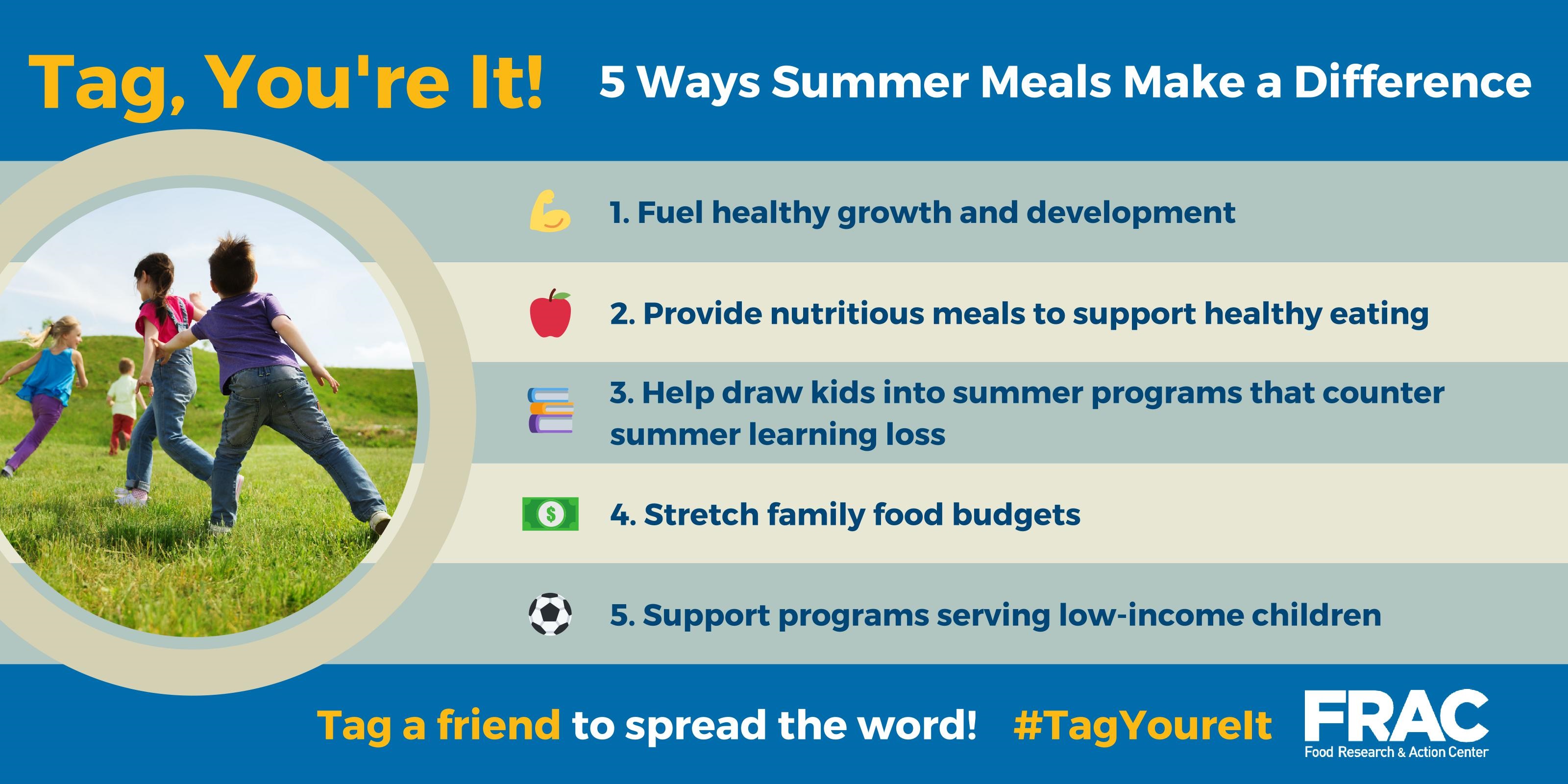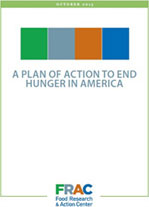August 5, 2019
FRAC’s recently released Hunger Doesn’t Take a Vacation: Summer Nutrition Status Report finds that the Summer Nutrition Programs served lunch to nearly 2.9 million children on an average weekday in July 2018, meaning only 14.1 low-income children received a summer lunch for every 100 who received a school lunch during the 2017–2018 school year. Similarly, FRAC’s companion Summer Breakfast Status Report finds that only 1.5 million children received a summer breakfast during the same period.

Both reports demonstrate that we need greater investments in the Summer Nutrition Programs and summer programming at the federal, state, and local levels to improve children’s access to nutritious food and critical programming over the summer. The Summer Nutrition Programs help fill the summer nutrition gap faced by far too many low-income children and adolescents by providing meals at summer meals sites. Fortunately, summer meals sites often offer educational or enrichment activities that can help ameliorate the effects of summer learning loss (or “summer slide”) and ensure more children start the school year ready to learn.
In the upcoming Child Nutrition Reauthorization, Congress has the opportunity to expand — substantially — children’s access to summer meals. Here are five strategies Congress can employ to strengthen and improve children’s access to the Summer Nutrition Programs:
- Lower the Area Eligibility Threshold to 40 Percent: Most summer meals sites qualify for federal summer food funding by demonstrating that they are in a low-income area where at least 50 percent of children are eligible for free or reduced-price school meals. The current 50 percent area eligibility test restricts low-income children’s access to the Summer Nutrition Programs in areas where poverty is less concentrated, particularly in rural areas. Lowering the threshold to 40 percent would increase children’s access to summer meals across the country and make the eligibility test consistent with the 21st Century Community Learning Centers program (the largest federal funding source for summer and afterschool programs).
- Streamline the Summer Food Service Program (SFSP) and the Afterschool Meal Program: Many sites that operate the Summer Food Service Program also serve meals after school during the school year through the Child and Adult Care Food Program (CACFP). As it stands, sponsors must apply for and operate two separate programs despite the fact they often serve the same children. Allowing SFSP sponsors to operate SFSP year-round would eliminate duplicative and burdensome paperwork while supporting sponsors’ efforts to serve more children in their community.
- Allow All Summer Meal Sites to Serve Three Meals Per Day: Many low-income children spend all day at summer programs, but most sites are only allowed to serve two meals. By providing all sites with the opportunity to serve three meals a day when they operate long hours, the Summer Nutrition Programs would ensure children have access to nutritious meals throughout the day as well as support working parents.
- Provide Funding for Summer Transportation Grants: It’s no secret that transportation is a barrier to participation in summer programs. Transportation funding would facilitate children’s access to summer programs and mobile meal trucks, thereby improving, particularly, children’s access to summer meals in rural and other underserved areas.
- Make Permanent and Increase Funding for the Summer Electronic Benefit Transfer Program (Summer EBT): As a complement to the Summer Nutrition Programs, Summer EBT provides low-income families with children a monthly benefit to purchase food over the summer. Currently, the Summer EBT program operates in select states and tribal nations in the country, but the program would be expanded to reach more underserved areas.
Now’s the time to call on Congress to take action to ensure more children have access to the nutrition they need when the school year ends.
Dive into the data on why strengthening and protecting summer meals is crucial at FRAC.org.



